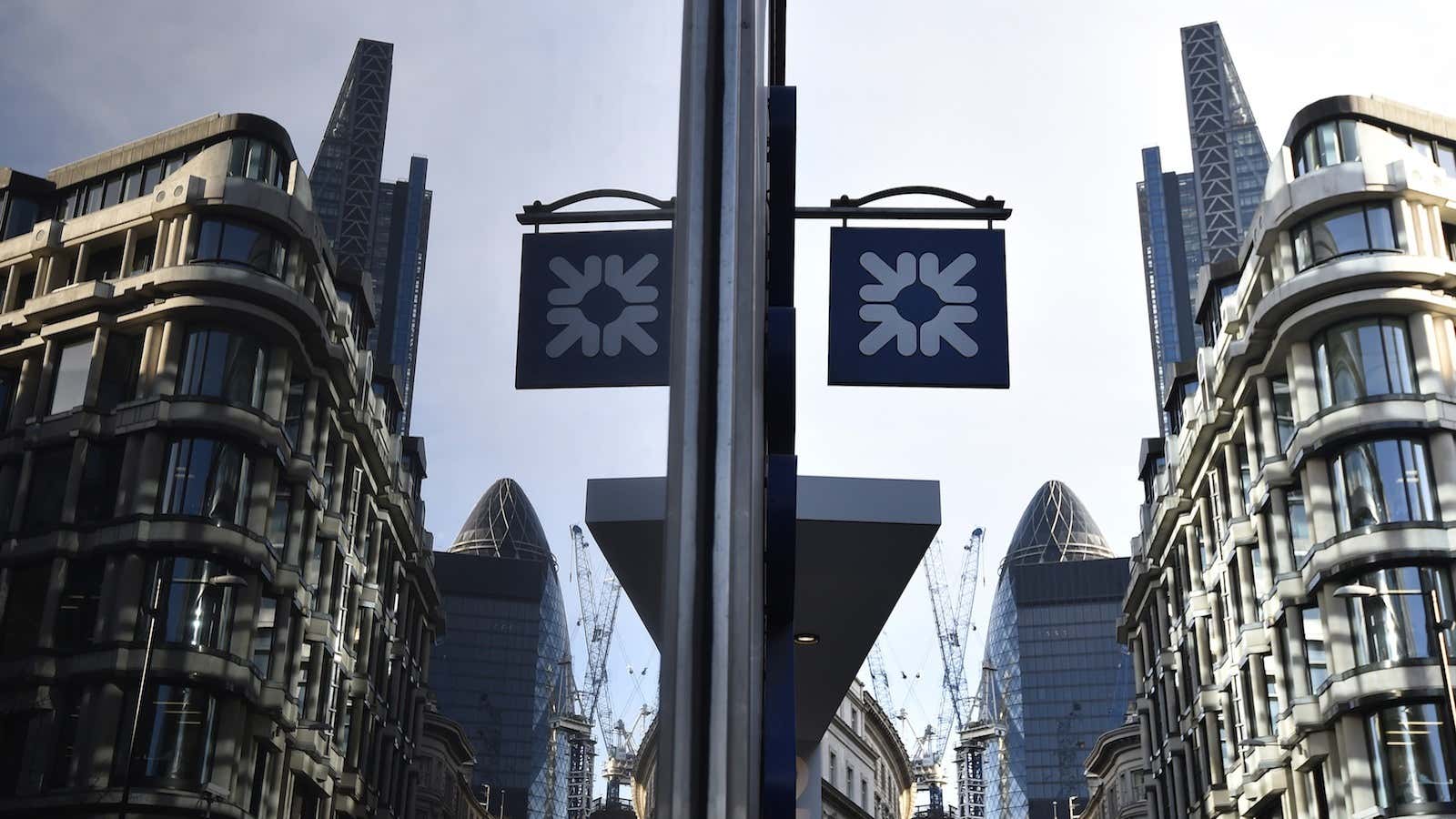All is not well for foreign banks operating in India.
In the last six months, at least four major foreign banks have faced challenges including trimming down of operations, job cuts, and hive-offs among others. The big names who have recently stumbled are the Royal Bank of Scotland (RBS), Standard Chartered PLC, HSBC, and Espirito Santo Securities.
The UK’s largest government-owned lender RBS said in February that it will close its operations in India and 24 other countries in a bid to lower costs and improve shareholder returns. It will, however, retain its global back office (pdf) in India.
“As part of these changes, we have taken the decision to sell or run down our CIB (corporate and institutional banking) businesses in APAC (Asia Pacific), of which India is a part,” an RBS spokesperson told the Mint newspaper. Globally, the bank is making losses, year after year.
A month earlier, in January, Standard Chartered, with $674 billion (Rs42.3 lakh crore) in total global assets, announced that it will be closing its unprofitable equity sales and research business. This includes its Indian operation.
“The problem is when the global parent is rationalising, they first look at the non-core or non-Euro region banks and that’s why many Indian operations have suffered,” said Ananda Bhoumik, senior director with India Ratings and Research, a Fitch Ratings company.
This is despite the fact that these establishments “continue to see opportunity in the Indian market,” he added.
Nonetheless, Bhoumik predicts that the expansion appetite of global banks in India will be limited through the next decade, even as the domestic banking sector opens up.
As of March 2013, according to data (pdf) from the Reserve Bank of India (RBI), there are 43 foreign banks in India with 334 offices and 25,384 employees. And it is this workforce that has faced the brunt of the action in recent months.
Employees of banks like HSBC India, for instance, are reported to have foregone a part of their bonus payments for the year. This is in light of the Swiss banking scandal which may result in huge fines by Swiss prosecutors for the bank’s global parent. London-headquartered HSBC has $2.7 trillion (Rs124.4 lakh crore) worth of global assets, with 52% of it outside Europe.
An HSBC India spokesperson did not respond to an email from Quartz.
The last time foreign banks went for huge layoffs in India was in 2012, when many of them were still reeling from the global financial crisis. Citigroup, HSBC, Bank of America Merrill Lynch and Barclays cut jobs to support the financial health of their parent companies.
Meanwhile, others like DBS, are slowing down their lending operations after witnessing a sharp spike in non-performing assets (NPA). The Singapore-based bank’s net NPA shot up to 10.21% of its portfolio for the 2014 fiscal, compared to 2.37% in the year before. DBS is the largest bank by assets in Singapore and one of the largest in Asia.
Foreign banks also haven’t shown appetite for setting up subsidiaries in India, two years after the RBI released a detailed framework. That’s mainly because of complex taxation and regulatory hassles.
Despite their limited presence, relative to India’s massive domestic banking sector, foreign banks are critical for Asia’s third largest economy as it looks to take off after years of sluggish growth.
For one, they make it easier for Indian companies to tap global capital markets, as these firms look to expand beyond domestic operations. And in a sector where large state-run establishments remain dominant, foreign banks also often drive the service and technology innovation. In 1987, for instance, HSBC was the first bank to install an ATM (pdf) in India.
